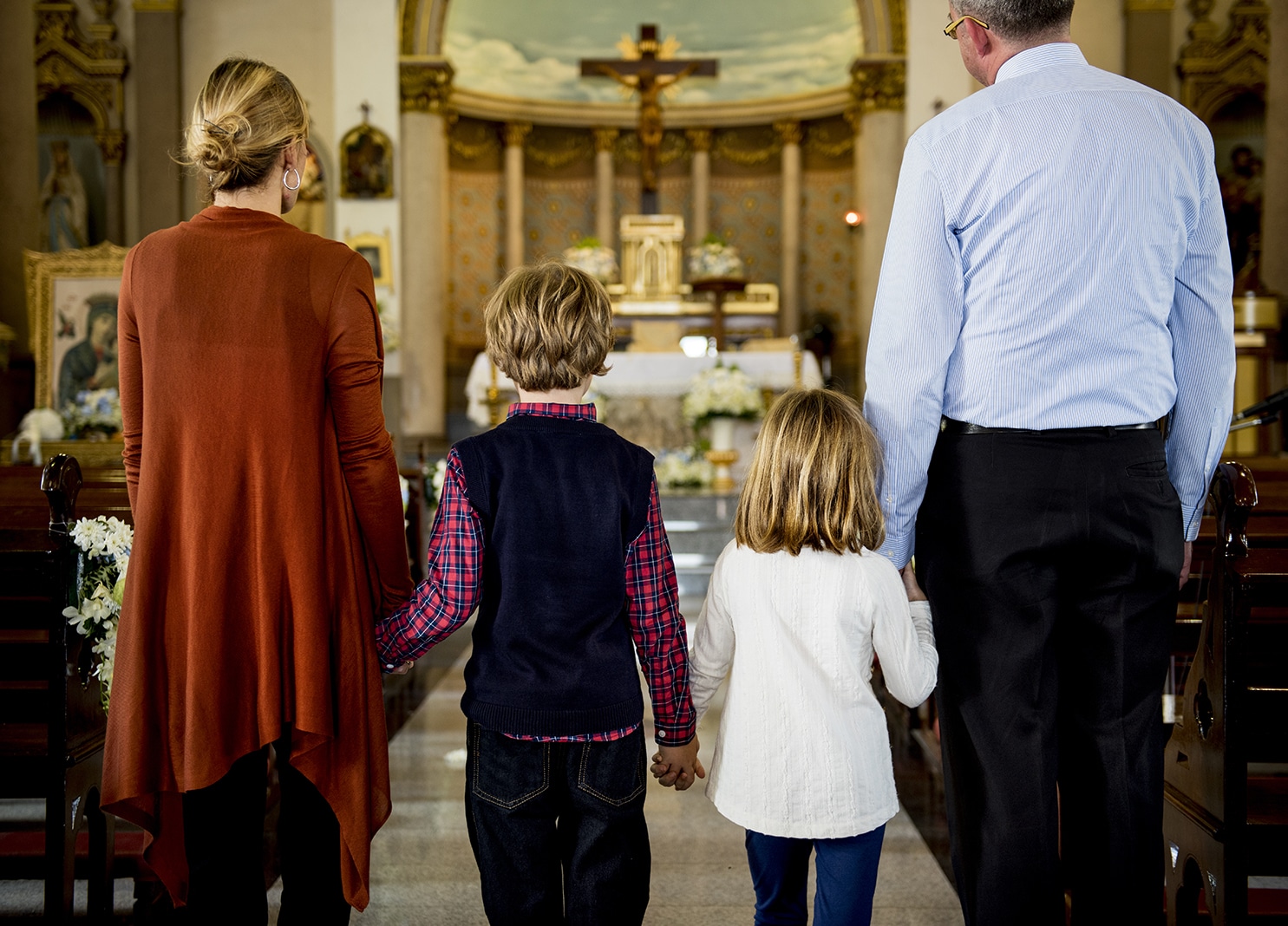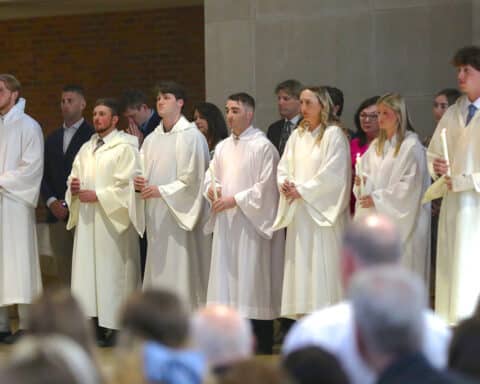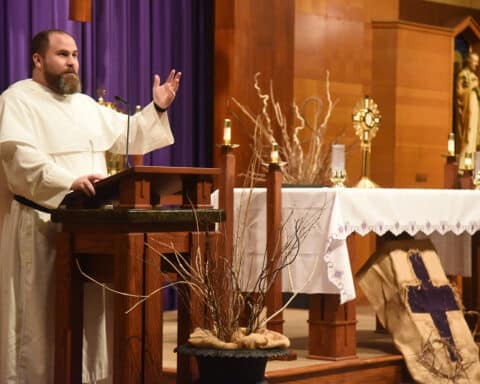“The Eucharist is the ‘source and summit of the Christian life'” (Catechism of the Catholic Church, No. 1324). Parents who raise their children in the Catholic faith seek a life for their children that begins with and returns to the Eucharist. But amid myriad influences and interests — both on the part of parents and on the part of children — this profound truth does not easily pass over into personal reality. How do we, as parents, form our children in this Eucharistic shape of life?
My friend and colleague Tim O’Malley has written extensively on the Eucharist and sacramental formation. He teaches many things and breaks open the mystery of communion for all the faithful to better understand. But what he says about the genesis of Eucharistic reverence is not focused on an explanation. “What we forget,” he says, “is that Eucharistic reverence starts with the body. My son learned that the Eucharist is integral to the life of our family and that Jesus Christ was present in the Blessed Sacrament not through instruction in a classroom. He learned it because we went to Mass. He discovered it because my wife and I taught him to genuflect before the tabernacle” (“Becoming Eucharistic People,” Ave Maria Press, $14.95).
These words come from a sacramental theologian who understands the Eucharist better than just about anyone else on earth, and yet he does not fall back on some exalted intellectual exercise when putting first things first. Instead, he recognizes that we all have the same duty when it comes to forming our children in the Eucharistic shape of life: it begins with our own reverence before the Blessed Sacrament, then shows our children how to imitate that same reverence with their own bodies.
We use our bodies to worship
Tim does not discount the importance of good teaching on the Eucharist. Catechesis matters. “But Eucharistic reverence in my life,” he continues, “always comes back to how I use my body in worship. I caught it first. My grandmother taught me to hold my hands together when I prayed. My grandfather taught me to kneel before the Blessed Sacrament.”
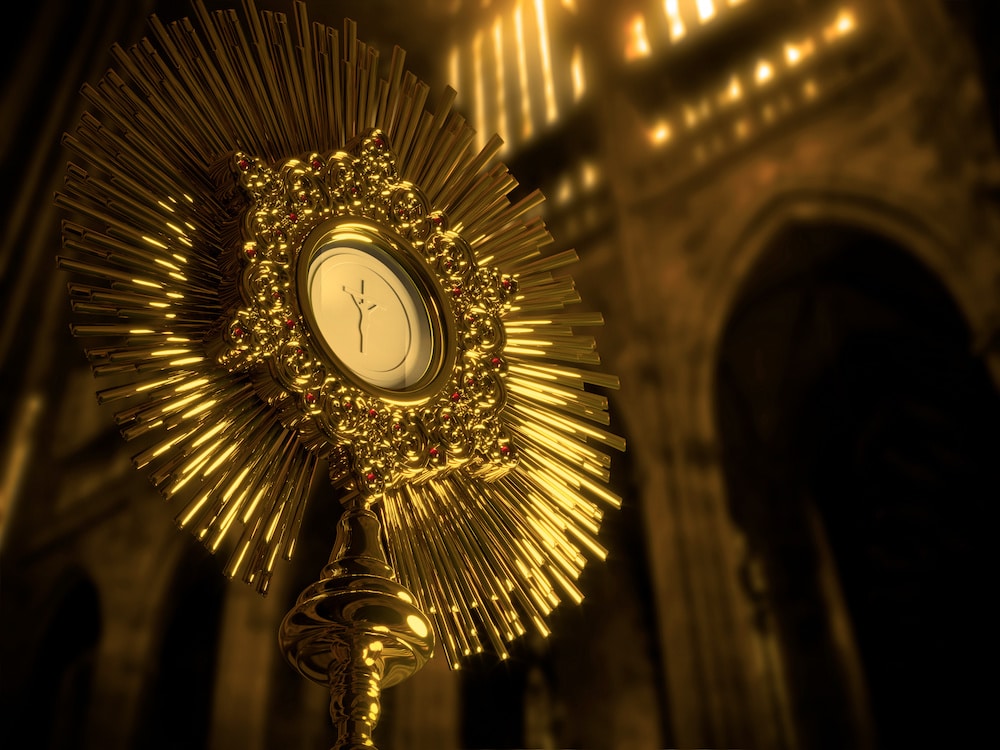
I begin with Tim’s simple but necessary insight when thinking about how to form our children for a Eucharistic life. The simple thing is that reverence comes first. The necessary thing is that there is no substitute for reverence. To form our children for the Eucharist is to form them in the way of love. You cannot teach love without loving. Love for the Eucharist is conveyed in reverence. With our bodies, we testify to the belief that here is the source of love, here is the summit of love. Our bodies reveal what we desire: to love the one who loves us first.
How I learned Eucharistic reverence
I learned to reverence the Eucharist from my father. His reverence came in the form of fidelity and dependency. It was his constancy in seeking the Eucharist that impressed on me the necessity of the Blessed Sacrament for everyday life, especially when everyday life is hard.
After my mom left him when I was seven and my brother was three, my dad raised us on his own at a time when single parents were not as common as they are now, and a single dad was rare indeed. With a broken marriage and shattered finances, followed by job insecurity and one health problem after another, my dad gave himself over to both the obvious and the millions of imperceptible daily duties of bringing up two young boys. Needless to say, there was a lot to do, but my dad regularly put one thing before everything else.
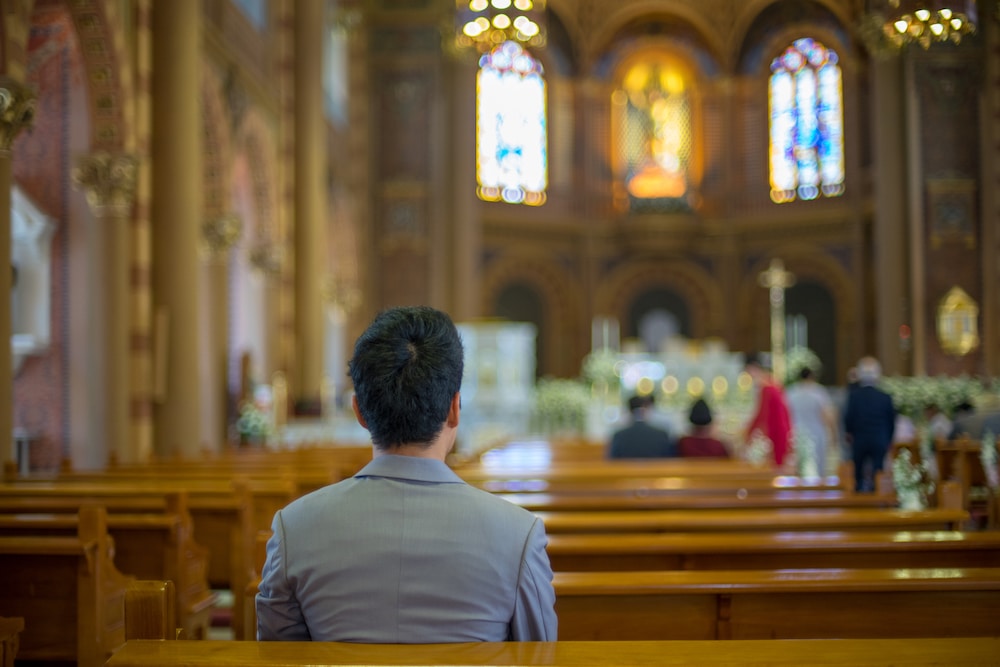
My father attended daily Mass every morning at 6:30. In and of itself, this practice was neither a form of overt piety nor heroism; in fact, when I asked my dad recently why he went to Mass every day, he said, “I just enjoyed it. It was a good way to start my day.”
Mass always ended a couple minutes before 7 a.m. and he would race home afterward to pack our lunches and get my brother and me ready for school (our neighbor would drink her coffee in our kitchen while my dad was gone, so we weren’t left alone — fear not). Otherwise, my dad’s days were no different than the great many parents who tend to their kids, work their jobs, cook meals, pay bills, attend school meetings, drive to sports practices, and maybe find a half-hour or so of down time at the end of the day. In all those ways, what he did then is much like what I do now. And yet I can’t help but think about the sheer volume of it all for a single parent, about the way he poured himself into it all, and about the simple routine that started all those days.
Once, when I was in the middle of one of my precocious, self-centered obnoxious outbursts during my early teenage years, my dad’s best friend sort of reprimanded me: “Someday you’ll realize all that your dad’s done for you.” Three decades later, I still think about that prophecy. Now that I myself am experiencing the joys and the struggles of parenting, I’m starting to realize what my dad did for me and my brother.
The most important thing he did for us, though, was that he went to Mass every morning. It is not that all the things that happened the rest of the day were the effects of this one cause; rather, each of those days that I lived under his care were days spent with a man who practiced giving both his joys and his sorrows to the Lord. As much as he had to improvise in those days and over those years, he made that one constant his foundation. And for two boys who lost the stability of a familiar home, he became our stability.
Though the translation of the Missal was different then, I sometimes like to think of my father at those early morning Masses when I recite these words before approaching the altar at Mass: “Lord, I am not worthy that you should enter under my roof; but only say the word and my soul shall be healed.” For him, that roof covered our home, and our home was a perpetual reminder of the fracture that had occurred in his life — of what once was but was no longer. Under that roof, we all erred, we all failed, and for all his remarkable virtues and heroic deeds, he also had his fair share of poor decisions. Like all families, ours was, in many ways, unworthy of blessing. And yet, he trusted that the Lord would bless him and our household, too, and he went to receive that blessing day after day in the breaking of the bread.
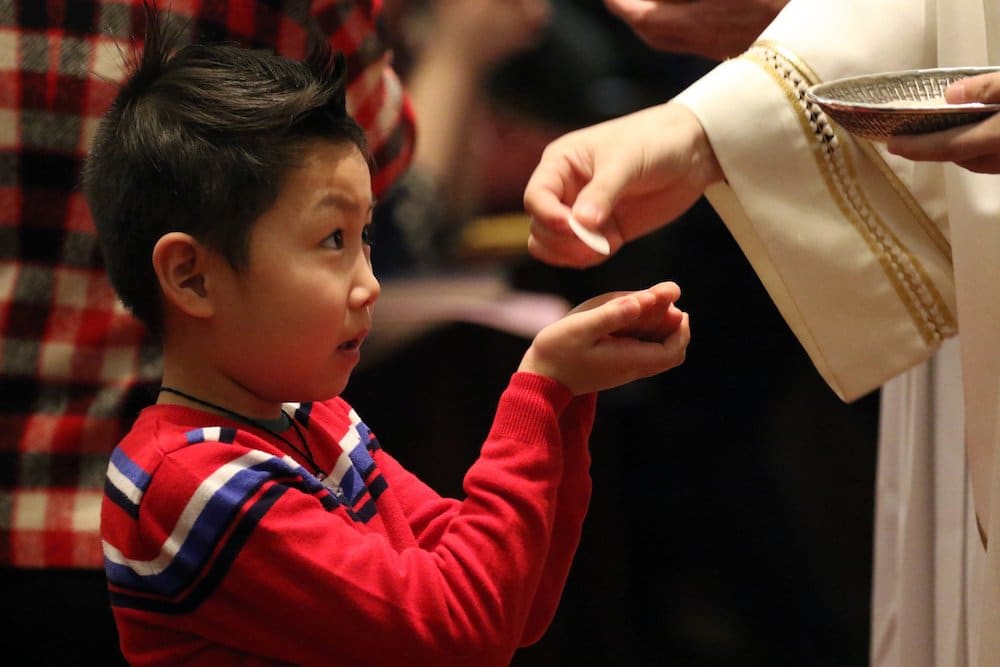
The beginning of learning
I’ve learned a lot about the Eucharist since I was a child. While I don’t quite know as much as my friend Tim, the sacramental theologian, I do “know” a lot more about the Eucharist than my dad ever has, thanks to my education in theology. I’ve studied the Eucharist, I’ve taught the Eucharist, I’ve written about the Eucharist. And yet, there is nothing I could ever think or say or write that would exceed the eloquence of what my dad did, day after day: He went out before we woke to receive the Eucharist, and he brought the Eucharist back to us within himself.
“Become what you receive,” St. Augustine preached. My dad carried what he received into our home and shared him in the uncountable small acts of love he performed daily. We fed on his love; he became our bread.
Whether witnessing a parent genuflect before the tabernacle or benefitting from a parent returning day after day to the altar to receive nourishment and offer sacrifices, the beginning of Eucharistic faith is in the reverence of those who pass the Faith on. There is no substitute for reverence, and for those of us who desire to form our children in a love for the Eucharist, the priority is to continue to foster that love in ourselves.
Sincerely,


